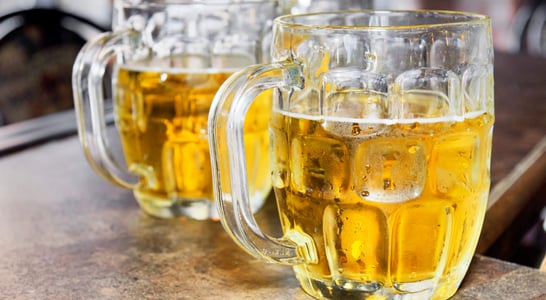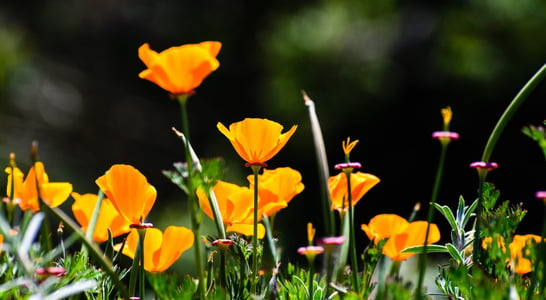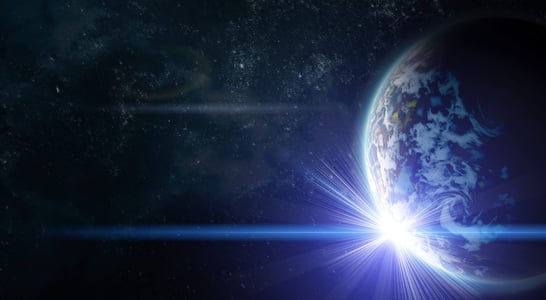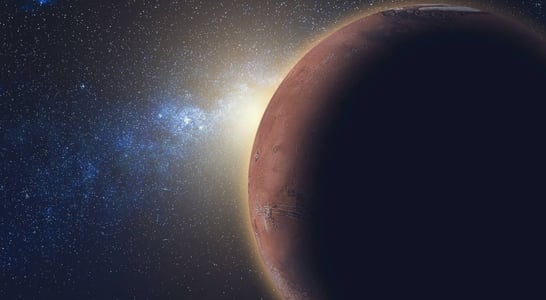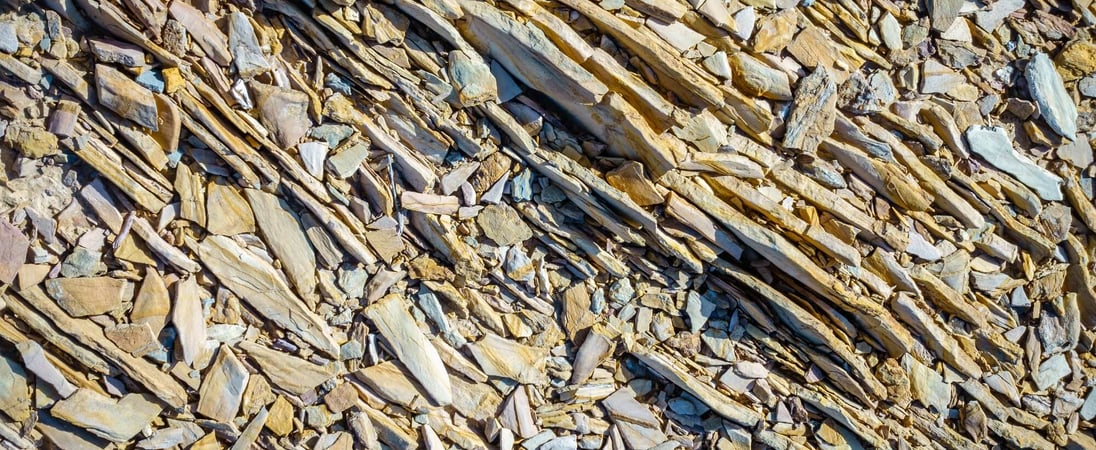
Geologists’ Day
Don’t take the ground beneath your feet for granted: honor the scientists that have delved into the Earth to teach us more about it on National Geologist’s Day.
For many people, geology could be considered an underappreciated science. This may be especially true when it is compared to other sciences such as physics, biology or chemistry. However, if the human race didn’t have geologists, then we wouldn’t know how the earth was formed!
Geologists’ Day dedicates this time towards thanking them for all the research they do to help further understand how our world works.
Not only that, but this day also seeks to learn about historical geologists that have helped people understand our world better and even possibly inspire some people to become geologists themselves!
How to Celebrate Geologists’ Day
Typically held on a Sunday, the celebration of Geologists’ Day can be fun for professional rock lovers and hobbyists alike!
This day strives to help further the study of how the earth came to be. Geologists’ Day is all about learning the history of the earth, the geologists who studied the earth, and helping to inspire people out there to study geology.
Consider the following ways to celebrate the day or come up with other creative ideas:
Learn More About Geology
Give a nod to Geologists’ Day by learning a bit about what the discipline of geology is and how it works.
Digging in rocks, observing maps, and studying how they all came to be is what a geologist’s job is all about. Make use of these online resources to learn more about geology:
- The Geological Society of America
- International Association for Promoting Geoethics
- Society of Economic Geologists
Those who are even more interested might take the time to join a few online classes to further their studies.
Take a look into the history of geologists, what they believed about the earth at the time they lived. If it turns out there’s an inner rock-lover in there, just waiting to get out, why not go for a degree while you’re at it?!
Show Appreciation to a Geologist
Geologists’ Day aims to show appreciation for the geologists that continue to study rocks and all their formations.
In fact, this is the perfect day to gather with some friends or family to thank some of those favorite geologists, or even just a science teacher, who may have made a difference in the understanding of the world we live in.
Listen to a Geology Themed Playlist
Hop onto Spotify or another favorite music hosting site and enjoy these songs that are reminiscent of the study of the earth, rocks, landslides and all the beautiful things that go along with geology:
- We Will Rock You (1977) Queen
- The Geologists are Coming! (2017) The Amoeba People
- Landslide (1975) Fleetwood Mac
- The Petroleum Age (2011) Philip Gibbs
- Geology Rocks (2017) Los Beekeepers
- Uranium Rock (1973) Warren Smith
- Sweet Geology (aka The Mineral Song) (2007) The Akkademiks
Share Geology Day with Friends
Show appreciation for the studies of geologists by sharing this holiday with friends and family. Go big by throwing a geology party, or keep it small by simply gifting friends or coworkers with a small stone or rock as a token of the day.
Whatever method is chosen, just the acknowledgment of this day is a step in the right direction toward appreciating the earth and its scientists!
Geologists’ Day FAQs
How did Geologists’ Day originate in the Soviet Union?
Geologists’ Day was established in 1966 by the Presidium of the Supreme Soviet to honor geologists’ contributions, especially after discovering petroleum in West Siberia.
The first Sunday of April was chosen to mark the end of winter and the preparation for summer fieldwork.
Are there any myths or legends associated with geological formations?
Yes, many cultures have myths explaining geological phenomena.
For instance, the Klamath people of Oregon have a legend about the creation of Crater Lake, involving a battle between two spirits, which aligns with geological evidence of Mount Mazama’s eruption.
What are some unique ways Geologists’ Day is celebrated worldwide?
In Russia, geologists and related professionals celebrate with gatherings, field excursions, and educational events.
In other countries, universities and geological societies may host public lectures, rock and mineral exhibitions, and field trips to promote geological sciences.
What is ‘geomythology,’ and how does it relate to geology?
Geomythology is the study of myths and legends that explain geological events and features.
These stories often contain valuable observations of natural phenomena, preserving historical geological events in cultural narratives.
How do geologists contribute to understanding natural disasters?
Geologists study Earth’s processes to predict and understand natural disasters like earthquakes, volcanic eruptions, and tsunamis.
Their research helps in disaster preparedness and mitigating the impact on human societies.
What are some fun facts about geology that might surprise people?
- Rubies and sapphires are both forms of the mineral corundum.
- Pumice, a volcanic rock, can float on water.
- The Himalayas are still growing at about 2.4 inches per year.
How has geology influenced human history and culture?
Geological events have shaped human history by influencing migration patterns, agricultural development, and settlement locations.
For example, the fertile soils of river valleys, formed by geological processes, supported the growth of ancient civilizations.
Are there any misconceptions about geology as a science?
A common misconception is that geology only involves studying rocks. In reality, it encompasses understanding Earth’s history, natural resources, and processes like plate tectonics, which affect the planet’s surface and life.
What role do geologists play in addressing climate change?
Geologists study past climate conditions through rock and ice core samples, helping to predict future climate trends.
They also assess natural resources and advise on sustainable practices to mitigate climate change impacts.
How can individuals participate in Geologists’ Day celebrations?
Individuals can visit natural history museums, participate in local geology club events, or take nature walks to observe geological features.
Sharing knowledge about geology on social media also helps raise awareness.
History of Geologists’ Day
Geology, or the study of the composition of rocks, soil and other materials, has been around since the times of Ancient Greece. In their pursuit of understanding the world around them, Greek scientists, who wondered how the rocks were formed, began studying fossils and generating theories to go along with their ideas and research.
Later, during the Middle Ages, when science was thought to have challenged the Catholic Church, more advances came (albeit sometimes subversively) in the field of geology. During this time, Leonardo da Vinci explored the functions of the human body but also, one of his lesser-known pursuits, is that he became a pioneer in geology.
One of da Vinci’s interesting lines of research was related to fossils. He concluded that the fossils he and others had found embedded on mountain tops must have been from animals that swam on an ancient sea bed, though none of them were exactly sure how they could have gotten there.
During the 17th-century, scientists began to make important links between certain sedimentary deposits in the oceans and the strata observable in rock formations.
Much of the explanation as to how that happened, however, continued to remain a mystery until James Hutton and William ‘Strata’ Smith came along. These two well-known geologists helped find the explanation of the earth’s long and slow development over the course of thousands of years.
Smith was also credited as the creator of the first, geologically detailed, national map of any country in the world. In this case, the country was England and he has since become known as the ‘Father of English Geology’.
Geologists’ Day, itself, was actually the idea of a group of well-known Soviet geologists who established it in April, 1966. The day was chosen in the spring because it notes the end of winter and is a time that ramps up to the summer season field work when geologists are so active.
While it continues to be a favorite day of the Russian Mineralogical Society, the day eventually made its way beyond the former Soviet Union and began to be celebrated by geologists, geophysicists and geochemists in various places in Europe, the United States and other countries around the world.
See what else is happening…
There’s always more going on every month at Days Of The Year. Here are our favorites this month!
Also on ...
View all holidaysNational Pajama Day
Embracing comfort all day, an effortless shift from formal wear to cozy pajamas adds a delightful twist to routines.
New Beer’s Eve
Crack open a cold one with friends or family, and toast to the end of Prohibition and the return of yeasty, hoppy, refreshing and delicious beer on New Beer’s Day.
National Caramel Popcorn Day
Sweet and salty, crunchy and soft: opposites attract on National Caramel Popcorn Day, so forget your diet and enjoy one of the nation’s tastiest snacks.
We think you may also like...
National Space Day
Visit an observatory or use a telescope to explore the night sky, or peruse one of NASA’s livestreams to remind yourself how big the universe really is.
World Photography Day
A beautiful way to tell a story, express emotions, and preserve the beauty of the world around us. Start capturing your own story today!

